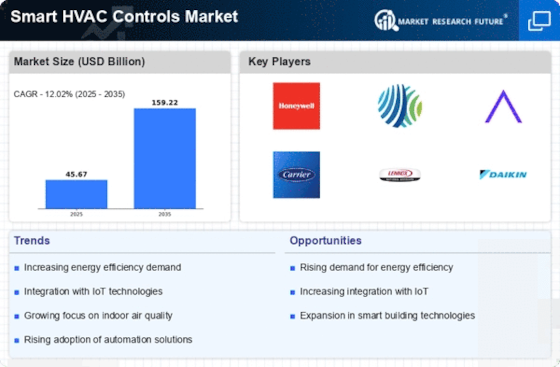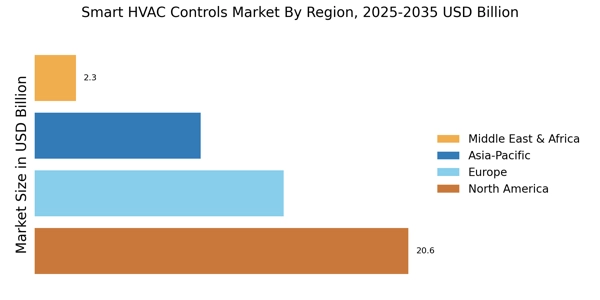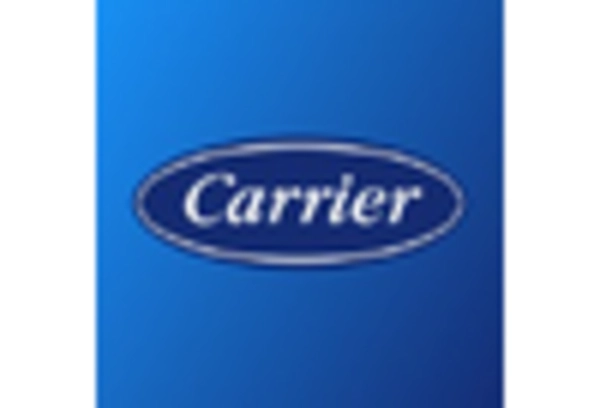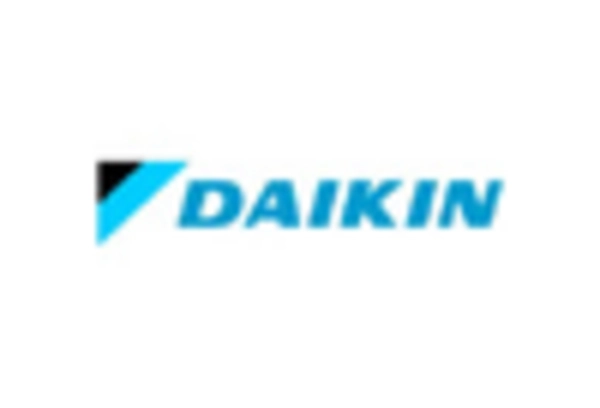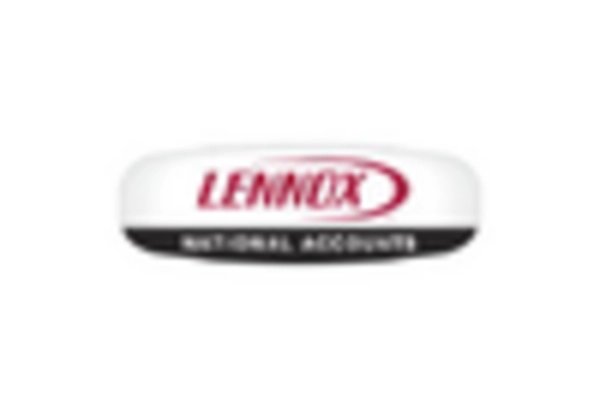Growing Smart Home Market
The expansion of the smart home market is a vital driver for the Smart HVAC Controls Market. As consumers increasingly adopt smart home technologies, the integration of HVAC systems with home automation platforms becomes more prevalent. Smart HVAC controls can seamlessly connect with other smart devices, allowing for centralized management of home environments. This interconnectedness enhances user convenience and energy management, appealing to tech-savvy consumers. Market forecasts suggest that the smart home market will continue to grow, potentially reaching a valuation of several hundred billion dollars in the next few years. This growth trajectory is likely to bolster the Smart HVAC Controls Market as more homeowners seek integrated solutions.
Rising Demand for Energy Efficiency
The Smart HVAC Controls Market experiences a notable surge in demand for energy-efficient solutions. As energy costs continue to rise, consumers and businesses alike are increasingly seeking technologies that can optimize energy consumption. Smart HVAC controls facilitate this by enabling precise temperature regulation and reducing energy waste. According to recent data, buildings equipped with smart HVAC systems can achieve energy savings of up to 30%. This trend is further fueled by government incentives aimed at promoting energy-efficient technologies, which enhances the attractiveness of smart HVAC solutions. Consequently, the focus on energy efficiency is a primary driver propelling the Smart HVAC Controls Market forward.
Increased Awareness of Indoor Air Quality
The growing awareness of indoor air quality (IAQ) significantly influences the Smart HVAC Controls Market. Consumers are becoming more conscious of the health implications associated with poor air quality, leading to a demand for HVAC systems that can effectively monitor and improve IAQ. Smart HVAC controls are equipped with features that allow for the regulation of ventilation and filtration, ensuring cleaner air within indoor environments. Research indicates that improved IAQ can enhance productivity and well-being, further driving the adoption of smart HVAC solutions. This heightened focus on health and comfort is a crucial factor propelling the Smart HVAC Controls Market.
Regulatory Support for Smart Technologies
Regulatory frameworks increasingly support the adoption of smart technologies within the HVAC sector, acting as a catalyst for the Smart HVAC Controls Market. Governments worldwide are implementing policies that encourage the use of energy-efficient and environmentally friendly technologies. These regulations often include financial incentives, tax credits, and rebates for consumers who invest in smart HVAC systems. Such supportive measures not only lower the initial investment barrier but also promote long-term savings on energy bills. As a result, the regulatory environment is a significant driver of growth in the Smart HVAC Controls Market, fostering a shift towards smarter, more efficient HVAC solutions.
Technological Advancements in HVAC Systems
Technological innovations play a pivotal role in shaping the Smart HVAC Controls Market. The integration of advanced sensors, machine learning algorithms, and artificial intelligence into HVAC systems enhances their functionality and efficiency. These technologies allow for real-time monitoring and adjustments based on occupancy patterns and environmental conditions. As a result, HVAC systems become more responsive and adaptive, leading to improved comfort and reduced operational costs. The market is projected to grow significantly, with estimates suggesting a compound annual growth rate of over 10% in the coming years. This technological evolution is a key driver for the Smart HVAC Controls Market.


